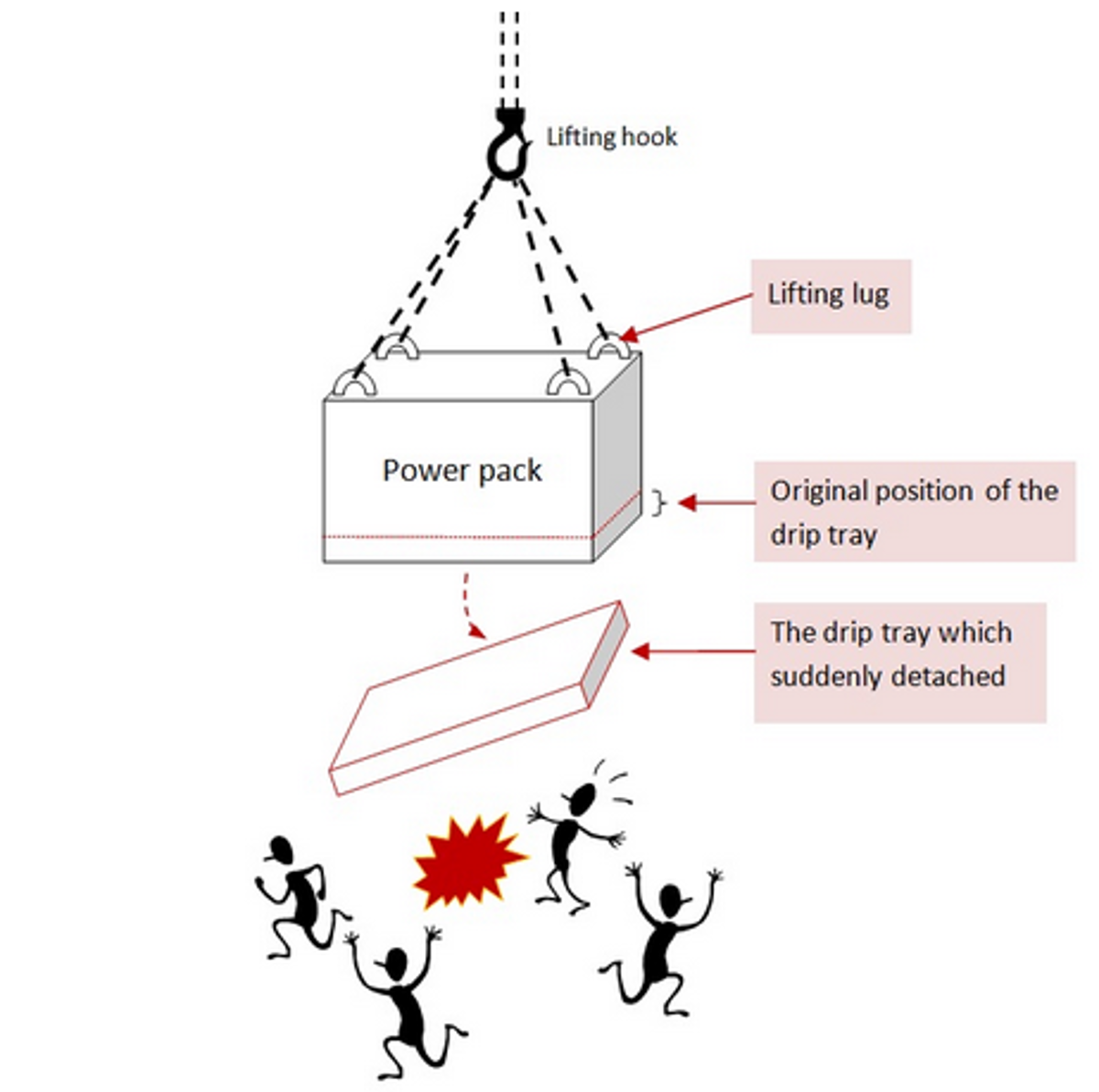WSH: Dropped objects fatalities – workers struck by fallen loads during lifting operations
- Safety Flash
- Published on 13 October 2015
- Generated on 2 March 2026
- IMCA SF 15/15
- 2 minute read
Jump to:
The Workplace Safety & Health Council of Singapore (WSH) published two recent safety alerts regarding dropped object fatal incidents where workers have been struck and killed by falling loads during lifting operations.
Incident 1
Four workers were on a barge, coiling the hoses (about 30m long) of a hydraulic power pack as the hydraulic power pack was being lifted by a crane.
During the lifting operation, the drip tray at the bottom of the power pack suddenly became dislodged and struck the workers as it fell onto the barge.
All four workers were sent to the hospital. One of the workers succumbed to his injuries and died later the same day.

Incident 2
A crawler crane was lifting bundles of reinforcement bar links (rebar links) from a trailer bed to a six-storey high work area. During lifting, one bundle detached from the entire load and hit a worker working on the trailer bed. He was subsequently pronounced dead on scene by paramedics.
Though only one of these incidents occurred offshore, they form a timely and tragic reminder to crews that no one should be directly under the load during lifting operations.
Members may wish to review Guidelines for lifting operations.
IMCA also has a video – Be prepared to work safely – Lifting operations (available in ten languages).
IMCA Safety Flashes summarise key safety matters and incidents, allowing lessons to be more easily learnt for the benefit of the entire offshore industry.
The effectiveness of the IMCA Safety Flash system depends on the industry sharing information and so avoiding repeat incidents. Incidents are classified according to IOGP's Life Saving Rules.
All information is anonymised or sanitised, as appropriate, and warnings for graphic content included where possible.
IMCA makes every effort to ensure both the accuracy and reliability of the information shared, but is not be liable for any guidance and/or recommendation and/or statement herein contained.
The information contained in this document does not fulfil or replace any individual's or Member's legal, regulatory or other duties or obligations in respect of their operations. Individuals and Members remain solely responsible for the safe, lawful and proper conduct of their operations.
Share your safety incidents with IMCA online. Sign-up to receive Safety Flashes straight to your email.